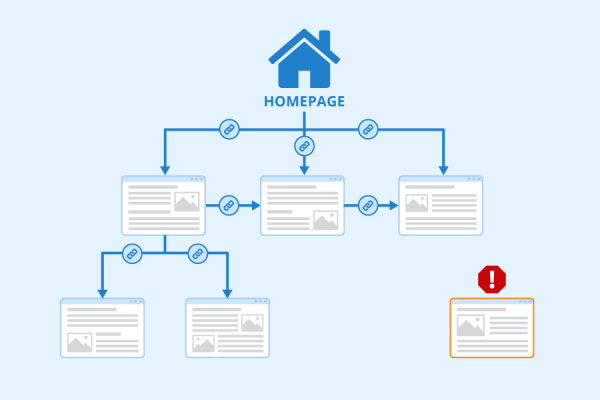Measuring SEO success involves tracking key metrics that indicate the performance and effectiveness of your website’s optimization efforts. Important metrics include organic traffic, keyword rankings, click-through rates (CTR), bounce rates, and conversion rates. Tools like Google Analytics, Google Search Console, and SEMrush provide insights into how your site is performing in search engines and user behavior. Monitoring these metrics helps in refining SEO strategies, identifying growth areas, and ensuring long-term success in driving relevant traffic to your site.
What Are SEO Metrics?
SEO metrics are quantitative measurements used to evaluate the effectiveness and performance of a website’s search engine optimization efforts. These metrics help website owners, digital marketers, and SEO professionals assess how well their strategies are working and identify areas for improvement. Key SEO metrics include organic traffic, which measures the number of visitors coming to a site through unpaid search results; keyword rankings, which track the positions of specific keywords in search engine results pages (SERPs); and click-through rates (CTR), which indicate the percentage of users who click on a specific link compared to the total number of impressions.
Additionally, metrics like bounce rate, which reflects the percentage of visitors who leave the site after viewing only one page, and average session duration, which measures how long users stay on the site, provide insights into user engagement and content effectiveness. Other important metrics include domain authority and page authority, which gauge the strength and credibility of a website based on various factors, including backlinks. Monitoring these metrics allows businesses to refine their SEO strategies, improve their visibility in search engines, and ultimately drive more qualified traffic to their websites. Overall, a comprehensive understanding of SEO metrics is crucial for developing data-driven strategies that enhance online presence and achieve business objectives.
Top Metrics to Measure SEO Success
Measuring the success of SEO efforts is essential for understanding how well a website performs in search engine rankings and user engagement. Effective SEO is not just about achieving high rankings on search engine results pages (SERPs); it encompasses a comprehensive approach that includes analyzing various metrics to gauge overall performance.
Key SEO metrics include:
- Organic Traffic: The number of visitors coming to your website from organic search results. This metric indicates how well your site ranks for relevant keywords.
- Keyword Rankings: The positions of your targeted keywords in search engine results pages (SERPs). Monitoring these rankings helps assess the effectiveness of your keyword strategy.
- Click-Through Rate (CTR): The percentage of users who click on your link when it appears in search results. A higher CTR suggests that your title tags and meta descriptions are compelling.
- Bounce Rate: The percentage of visitors who leave your site after viewing only one page. A high bounce rate may indicate that your content is not engaging or relevant to users.
- Pages per Session: The average number of pages viewed by users during a single session. Higher numbers indicate better engagement with your content.
- Conversion Rate: The percentage of visitors who complete a desired action (e.g., making a purchase, signing up for a newsletter). This metric is crucial for assessing the ROI of your SEO efforts.
- Backlinks: The number and quality of external links pointing to your site. Backlinks are essential for building domain authority and improving rankings.
- Page Speed: The time it takes for a page to load. Faster loading times improve user experience and can positively impact rankings.
- Pages Indexed: The number of pages from your website that search engines have indexed. This indicates how well your site is being crawled and can influence visibility.
Why is SEO Tracking Important?
SEO tracking is crucial for any business or website aiming to enhance its online presence and achieve measurable results. By continuously monitoring and analyzing SEO performance, organizations can gain valuable insights into how well their website ranks on search engine results pages (SERPs) for targeted keywords. This data enables them to understand user behavior, including which pages attract the most traffic and where visitors are dropping off, allowing for informed decisions about content optimization and user experience improvements.
Furthermore, SEO tracking helps businesses evaluate the effectiveness of their marketing strategies by identifying trends over time and adjusting campaigns based on what works best. It also plays a vital role in competitor analysis, as businesses can compare their performance against industry benchmarks, helping them identify gaps and opportunities. Additionally, tracking key performance indicators (KPIs) such as organic traffic, conversion rates, and click-through rates empowers marketers to allocate resources effectively, ensuring that time and budget are spent on the most impactful tactics. Ultimately, SEO tracking is not just about measuring success; it’s about fostering continuous improvement and driving sustainable growth in a competitive digital landscape.
Track SEO Success: Essential Tools
Tracking SEO success is crucial for understanding how well your website is performing in search engines and for identifying areas for improvement. Here are essential analytics and tools to help you measure and track your SEO efforts:
- Google Search Console: Provides data on how your site is performing in Google search, including indexing status, search queries, and CTR.
- Google Analytics: A comprehensive tool that tracks website traffic, user behavior, and conversion rates. Use it to monitor organic traffic and analyze user engagement.
- SEMrush: A powerful SEO tool that offers keyword tracking, site audits, and competitive analysis. It helps you identify new keyword opportunities and monitor your backlink profile.
- Ahrefs: Known for its backlink analysis capabilities, Ahrefs provides tools for keyword research, site audits, and competitor analysis.
- Screaming Frog SEO Spider: A website crawler that analyzes your site for SEO issues such as broken links, duplicate content, and missing metadata.
- Moz: Offers tools for keyword research, rank tracking, and site audits, along with a community and learning resources.
- Yoast SEO: A popular WordPress plugin that helps optimize on-page SEO elements like meta tags, readability, and keyword usage.
- Ubersuggest: Keyword research and SEO analysis tool. Keyword suggestions, domain overview, and content ideas.
- KWFinder: A keyword research tool that helps you find long-tail keywords with low SEO difficulty.
- SpyFu: Focuses on competitor research, allowing you to see the keywords your competitors are ranking for and their ad strategies.
How to Track SEO Performance with the Right Tools
Tracking SEO performance effectively requires a combination of the right tools and strategic analysis. Start by setting clear, measurable goals that align with your overall business objectives, such as increasing organic traffic, improving keyword rankings, or enhancing conversion rates. Tools like Google Analytics are essential for monitoring website traffic and understanding user behavior; they provide insights into where visitors come from, how they interact with your site, and which pages perform best.
Additionally, Google Search Console offers critical data on your website’s search performance, including impressions, clicks, and average position for specific keywords. To dive deeper into keyword performance, tools like SEMrush, Ahrefs, and Moz can help you track rankings over time, analyze competitor strategies, and identify keyword opportunities. Social media and backlink analysis tools, such as BuzzSumo and Majestic, can also provide valuable context about your content’s reach and authority. Regularly reviewing these metrics will help you identify trends, adjust strategies, and ultimately optimize your SEO efforts. Combining quantitative data with qualitative insights from user feedback and site audits will give you a comprehensive view of your SEO performance, allowing for informed decision-making and targeted improvements over time.
How Long Does It Take to See SEO Results?
The time it takes to see SEO results can vary significantly based on several factors, making it a complex process that requires patience and strategic planning. Generally, businesses can expect to see initial improvements in their search engine rankings within 3 to 6 months after implementing SEO strategies, but meaningful results often take longer—typically between 6 to 12 months. The timeframe can depend on the competitiveness of the industry, the quality of the content, the effectiveness of keyword targeting, and the current authority of the website. For instance, in highly competitive sectors, achieving significant visibility can take longer as businesses compete against established players.
Additionally, ongoing changes in search engine algorithms can also impact how quickly results manifest, as they continuously evolve to prioritize quality and relevance. Moreover, local SEO strategies might yield quicker results for small businesses targeting a specific geographical area, whereas broader national or international campaigns may require more time to build authority and trust. Ultimately, consistent effort in creating high-quality content, optimizing on-page elements, building backlinks, and improving user experience is essential for sustained SEO success, and it is crucial for businesses to adopt a long-term perspective when investing in SEO to truly realize its benefits.
















